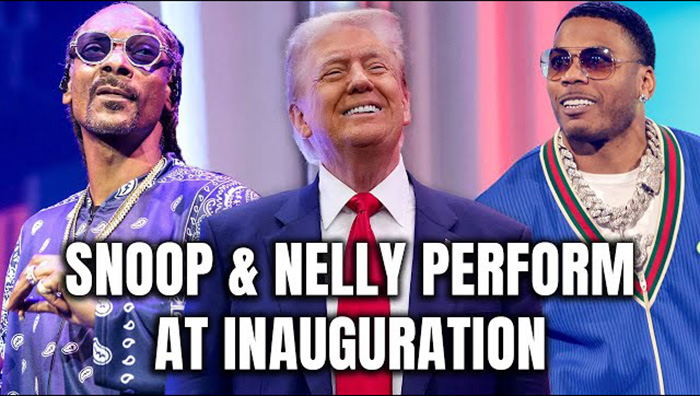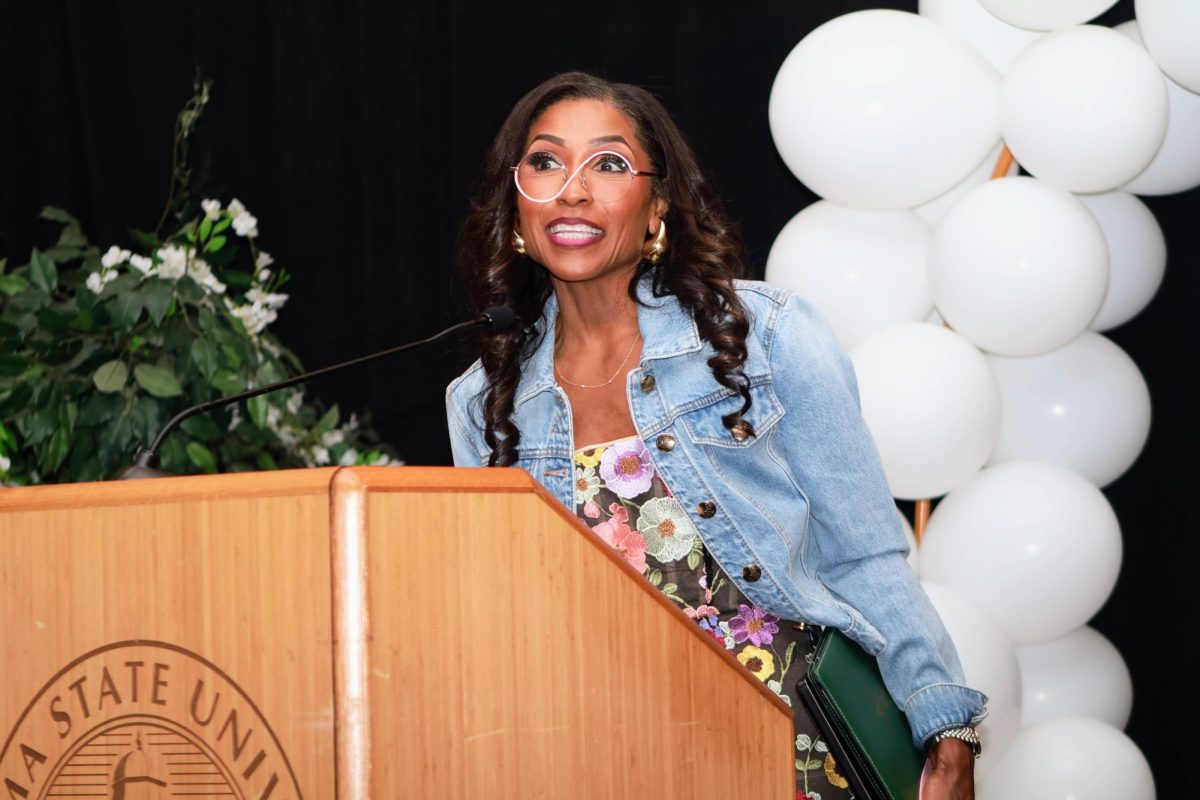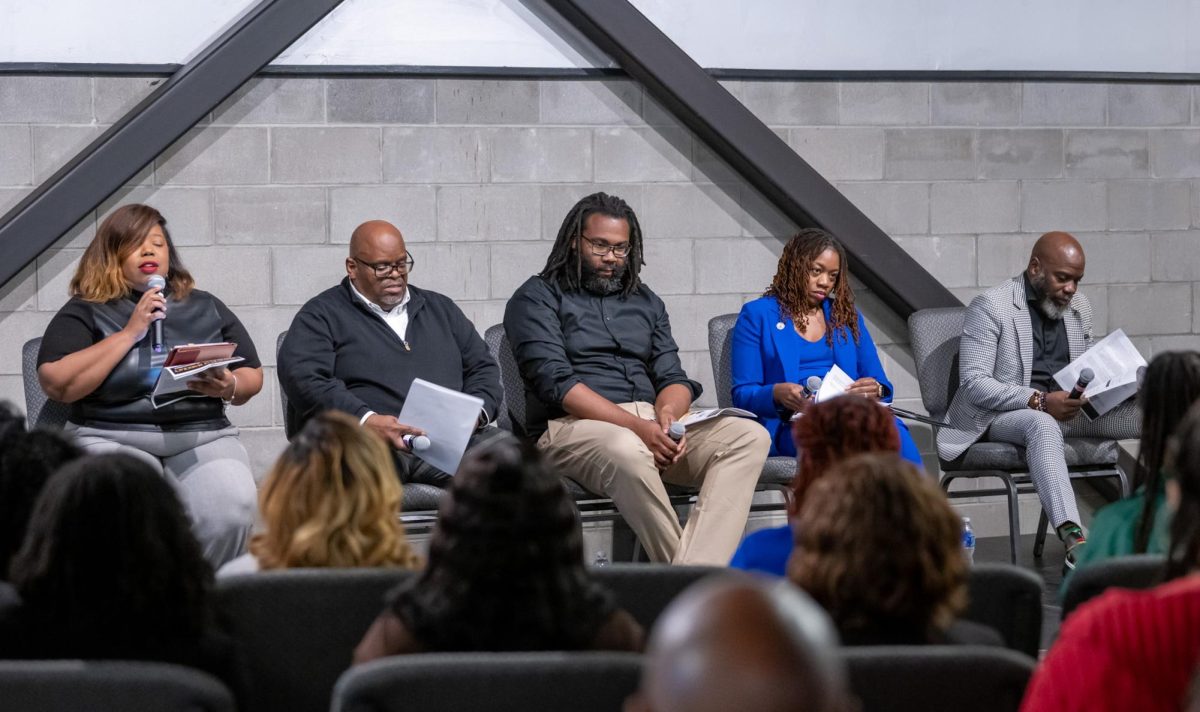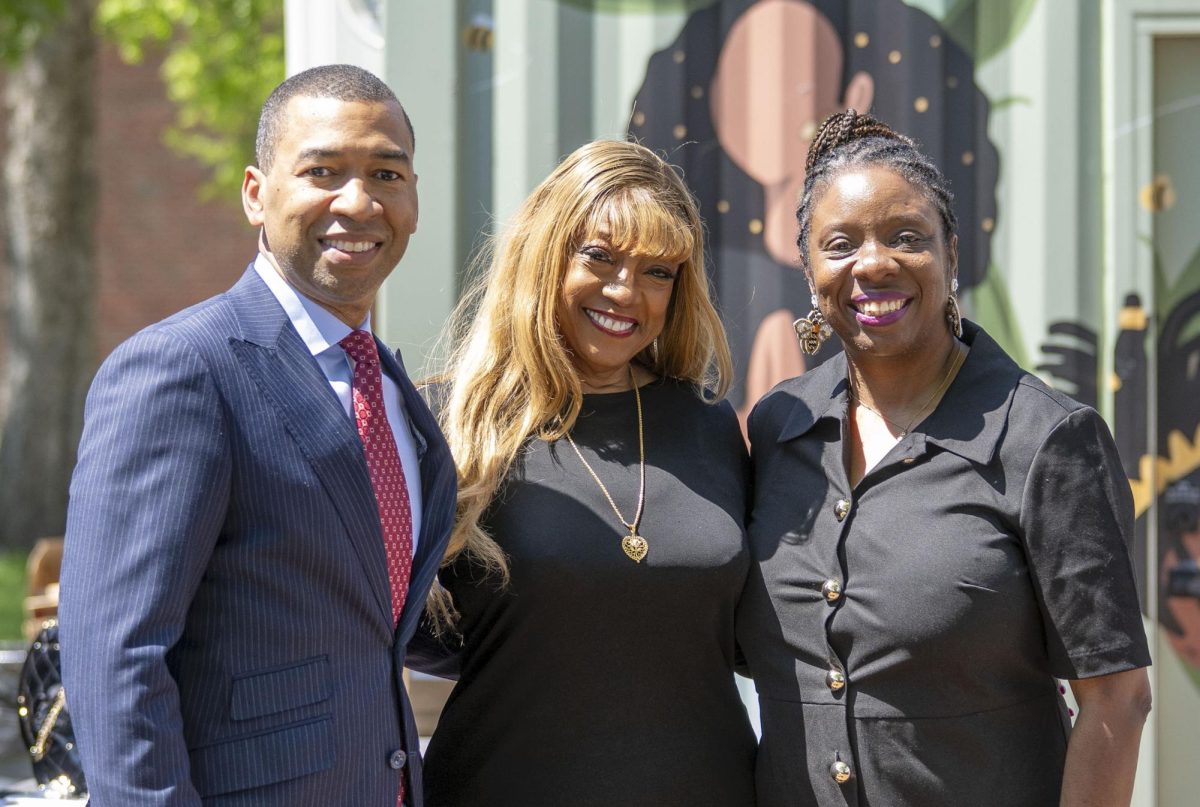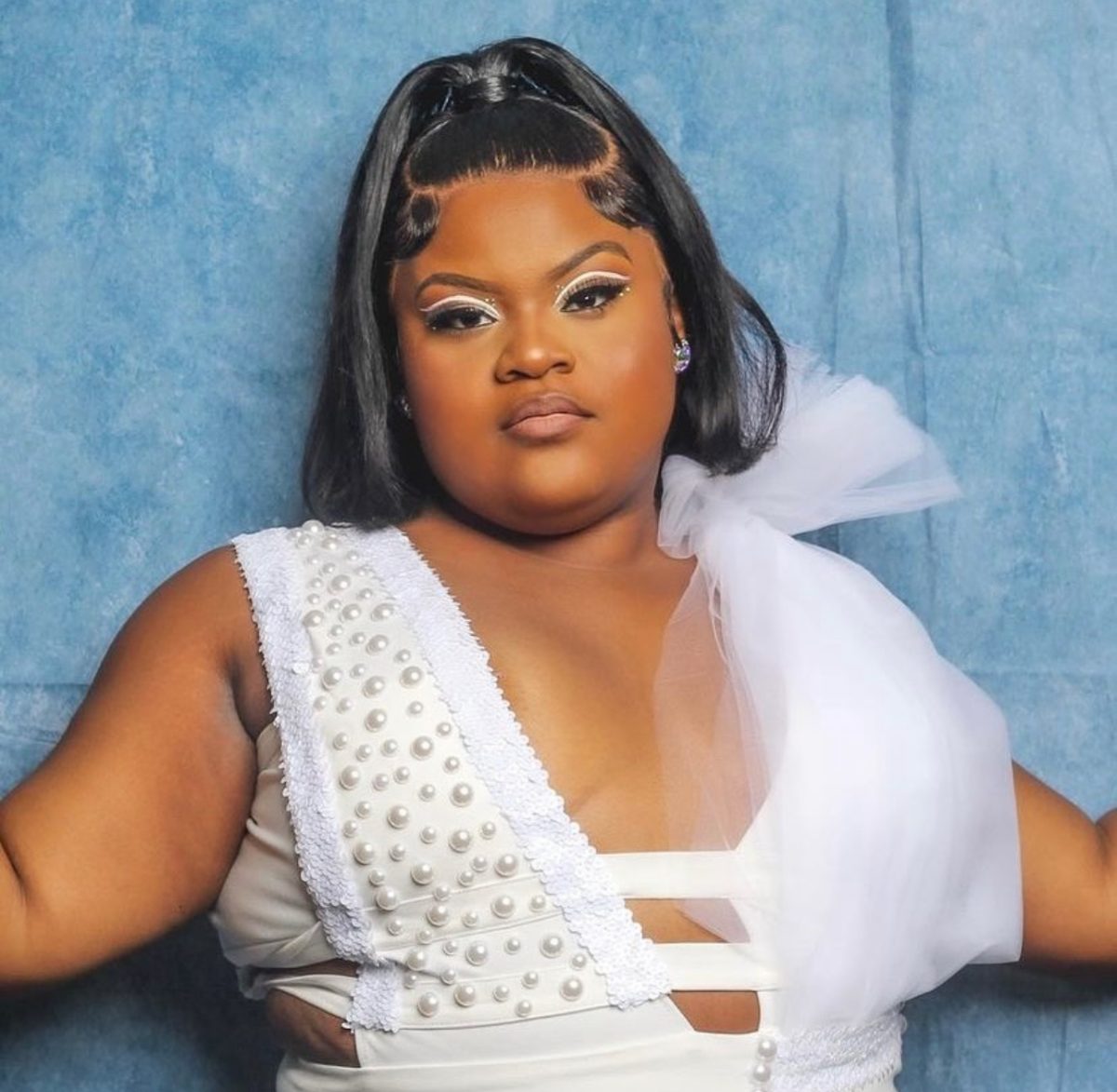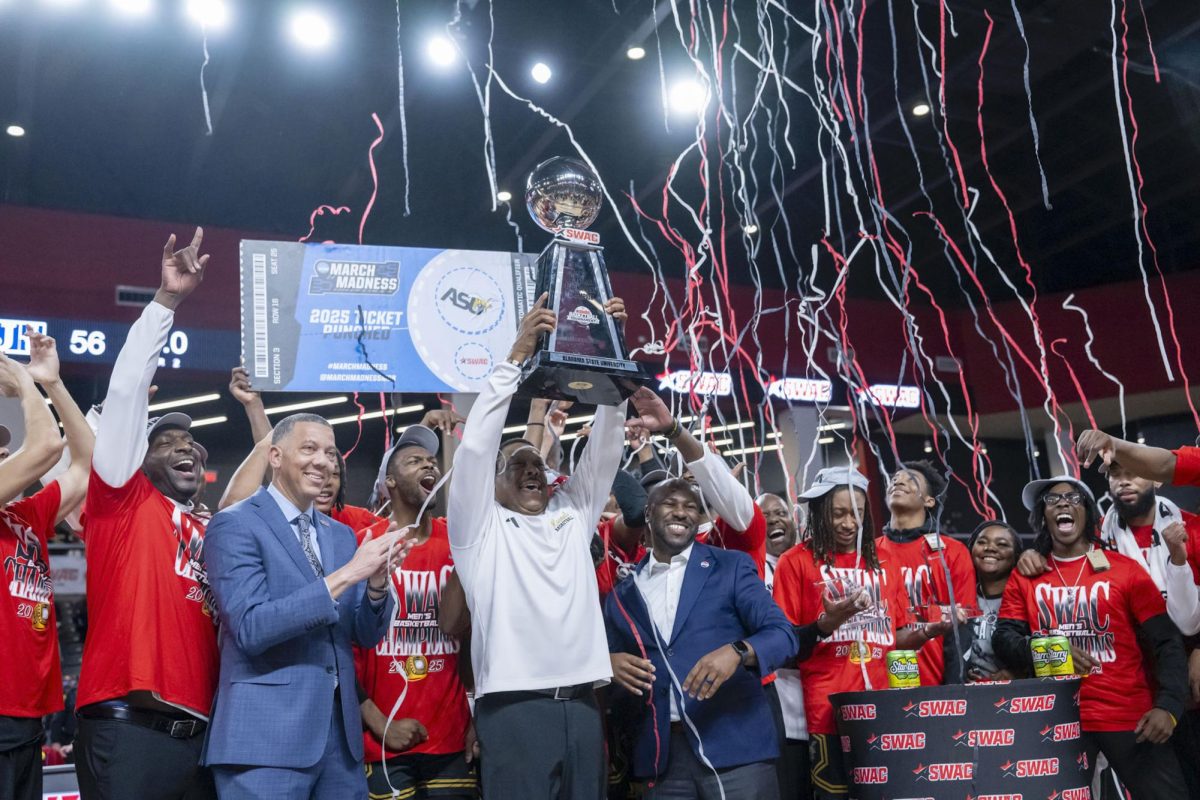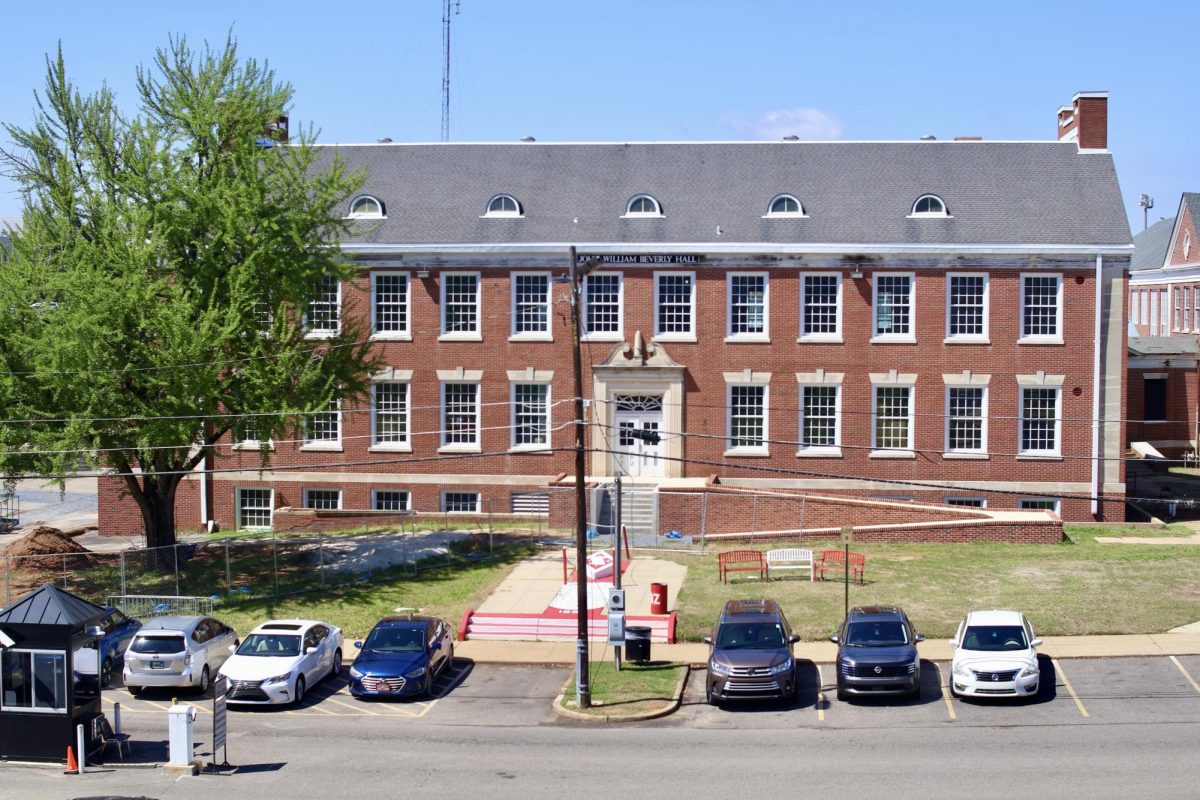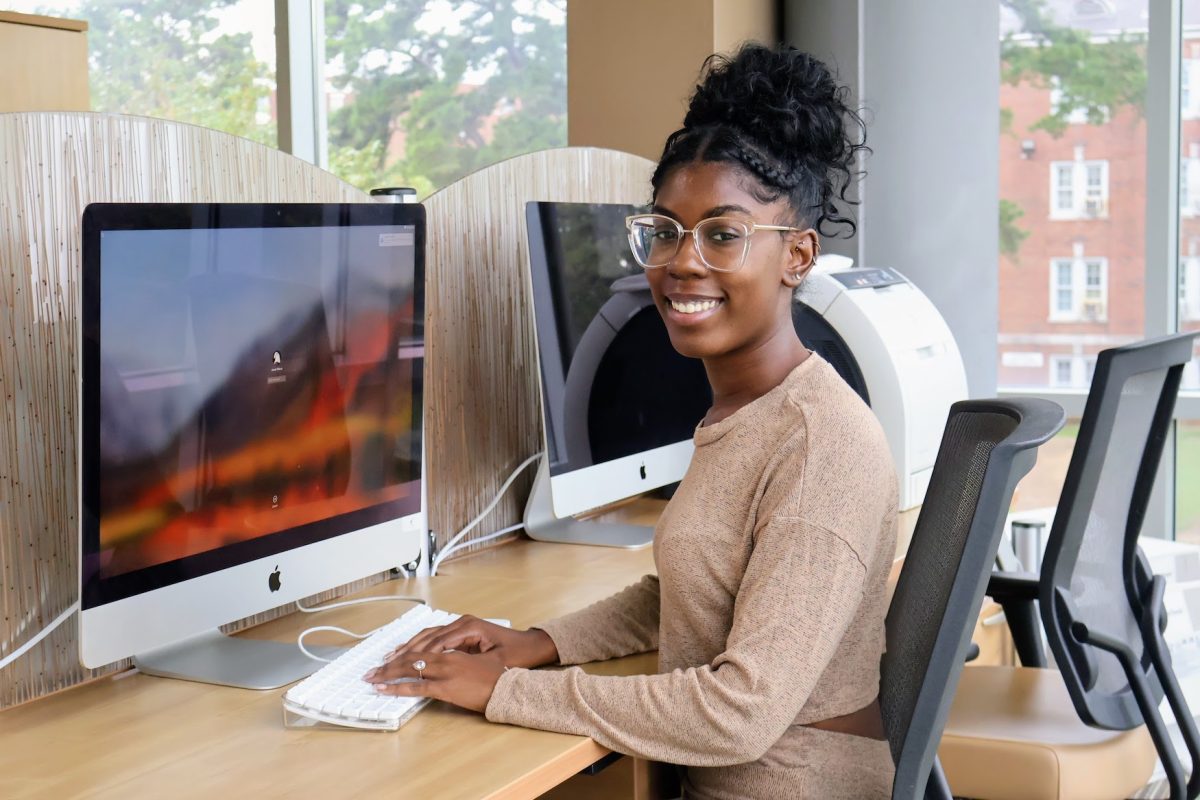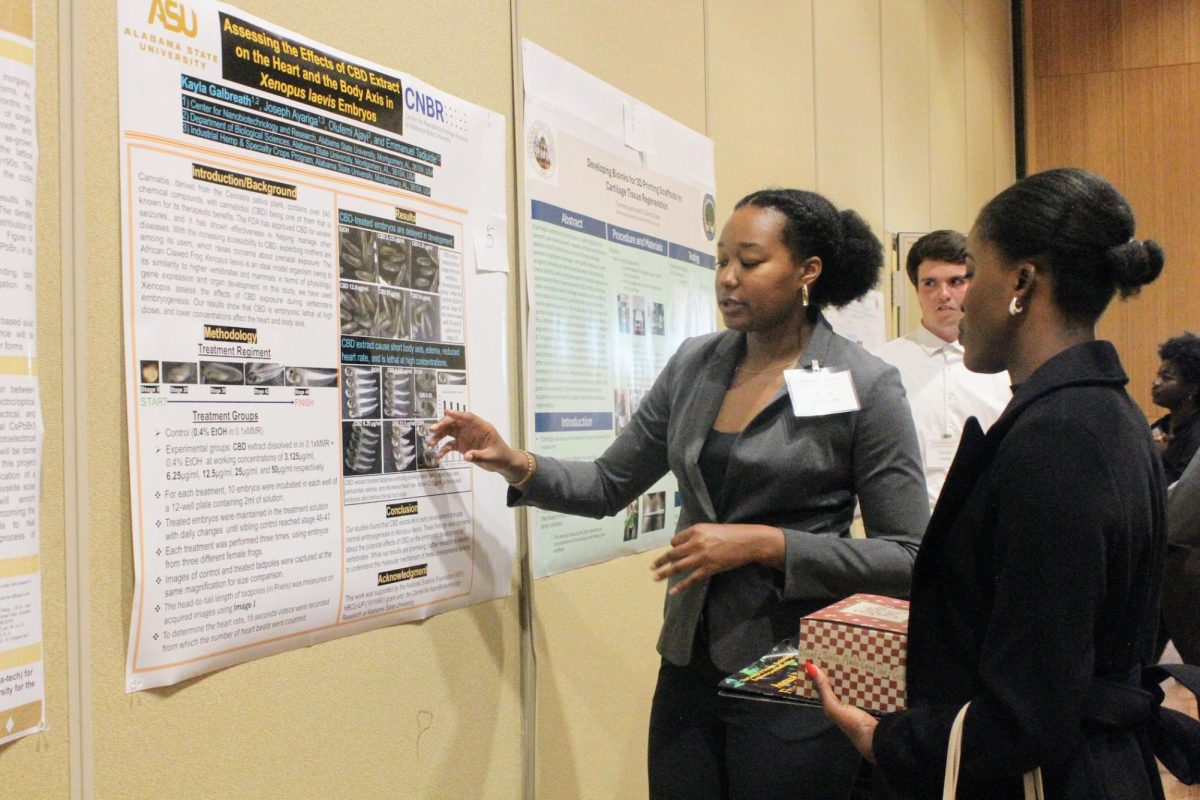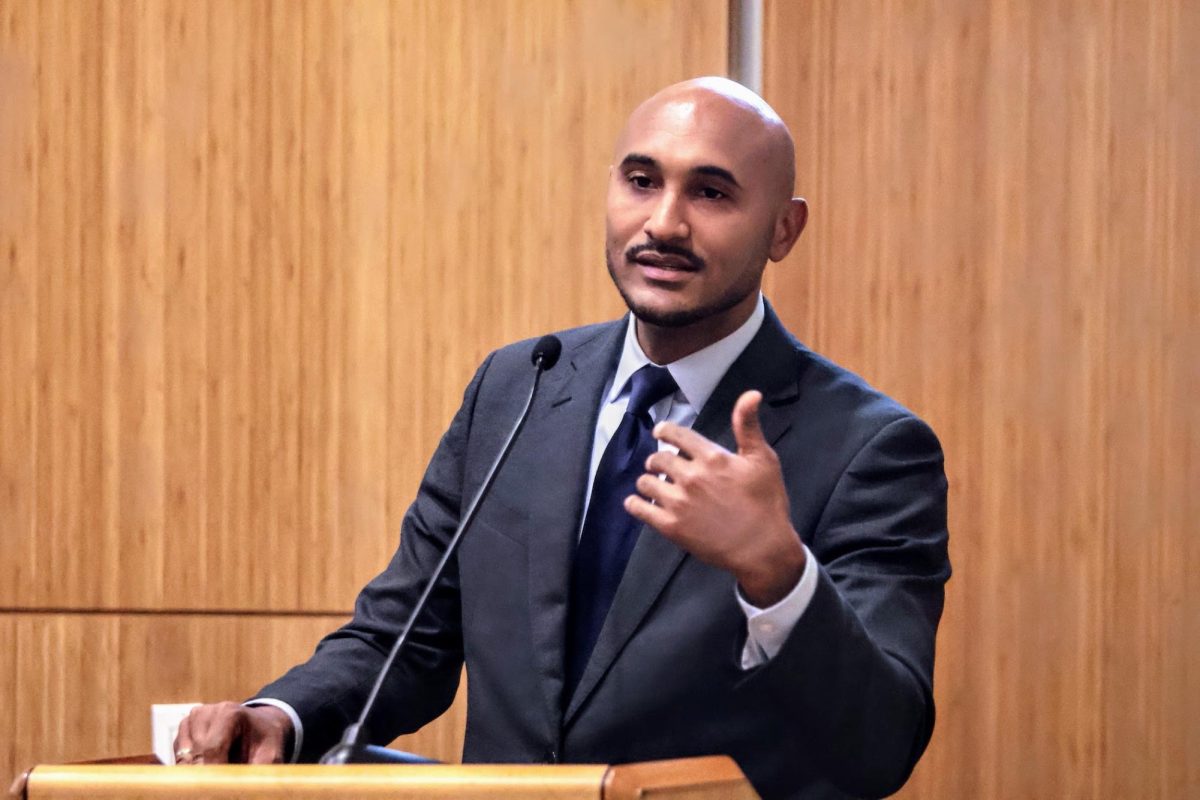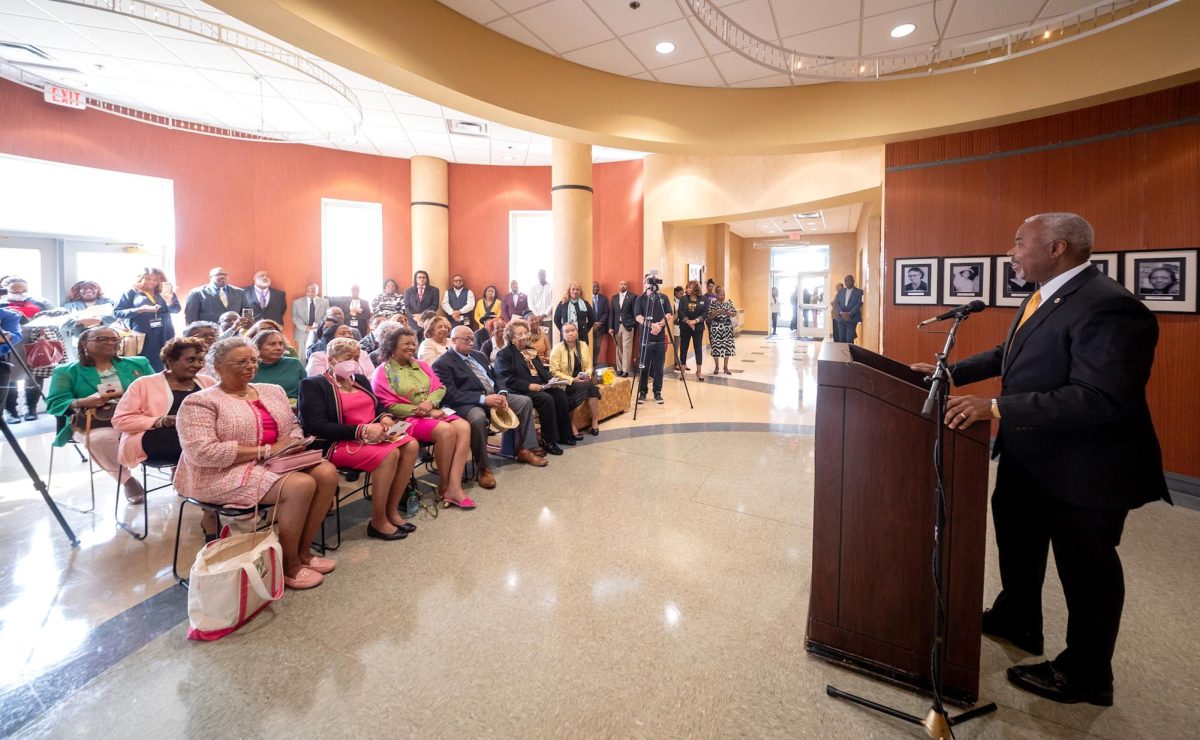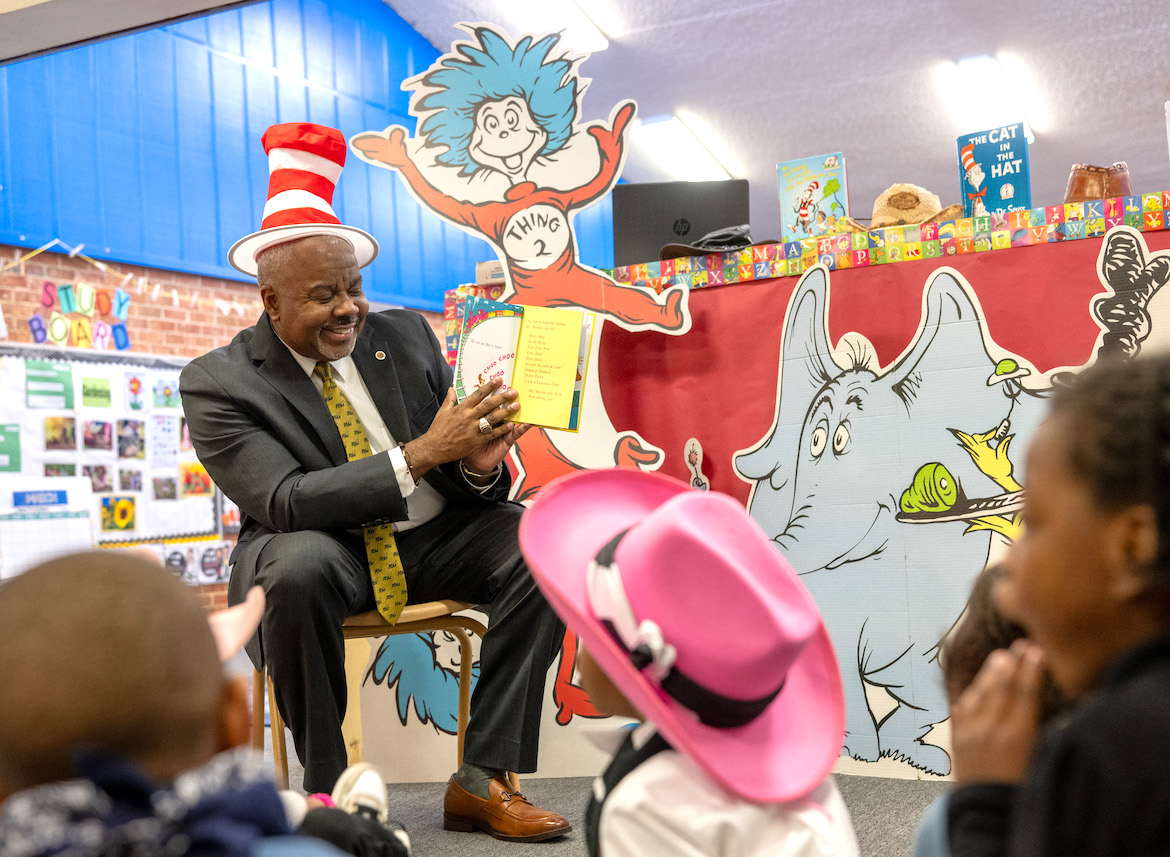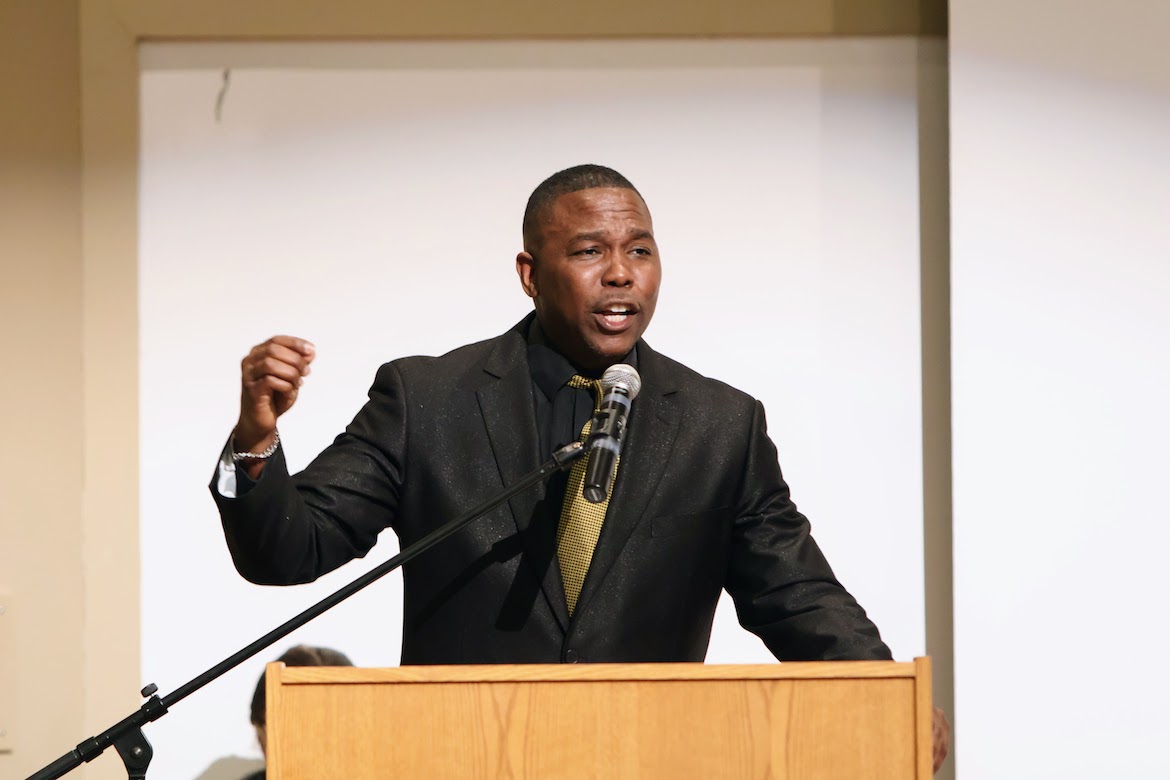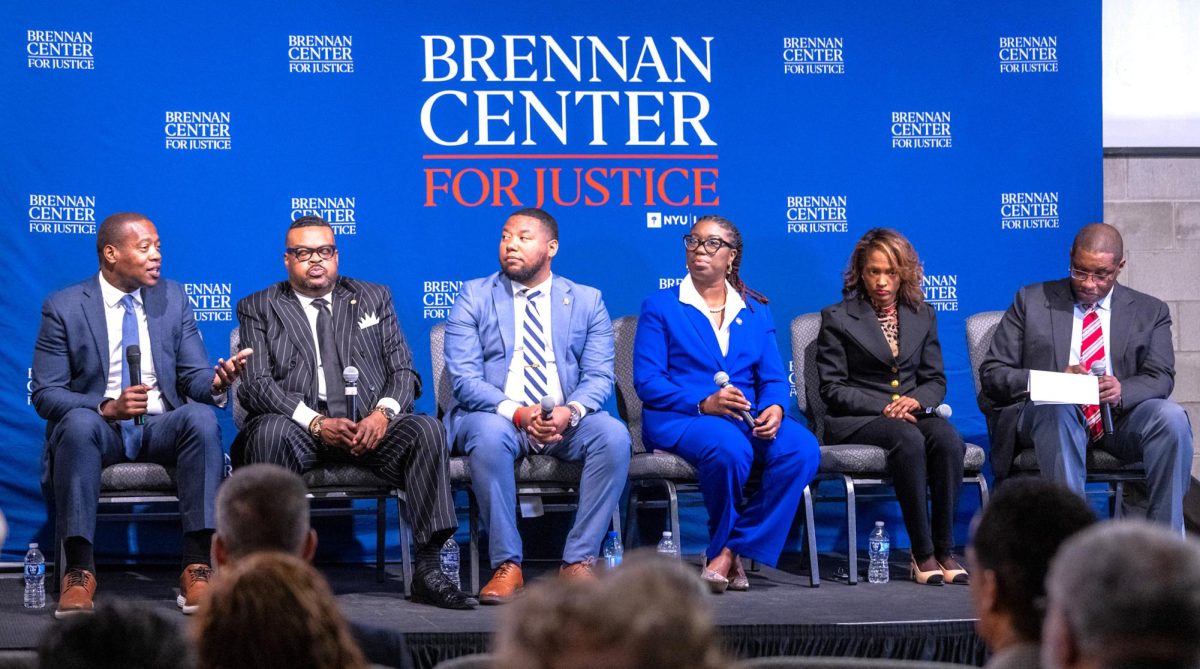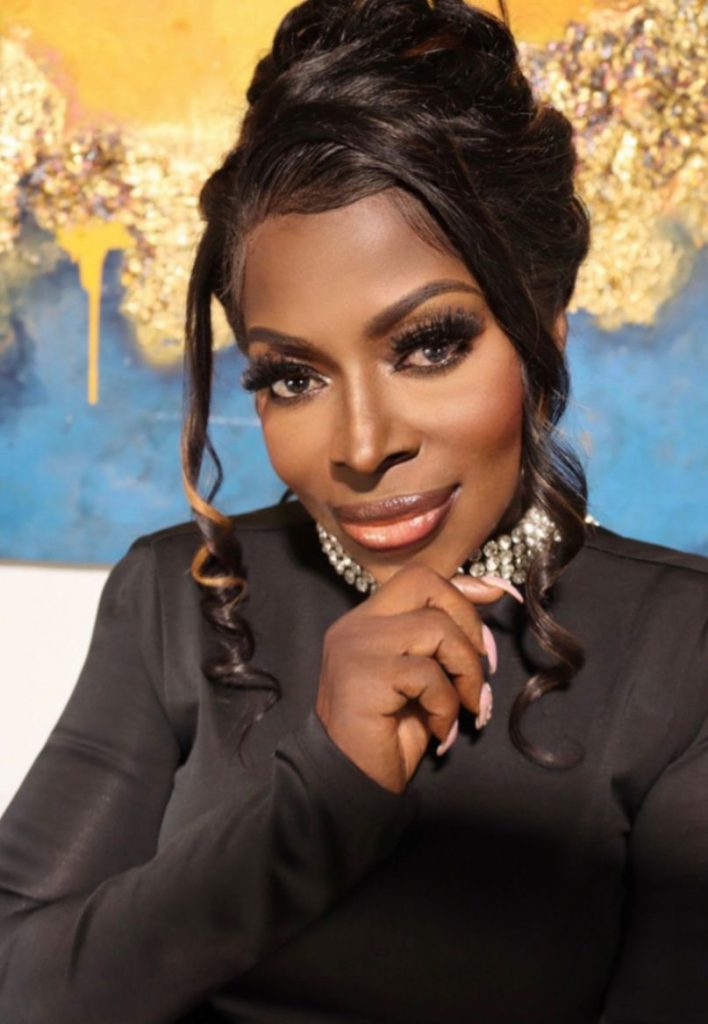The decision by Black artists Snoop Dogg and Nelly to perform at President Donald Trump’s second inauguration balls sparked heated debates within the Black community.
With Snoop Dogg performing at the first-ever “Crypto Ball” Jan. 17 and Nelly performing for the official Inaugural Liberty Ball Jan. 20, Black people are questioning the boundaries of politics, culture and financial gain.
While some Black artists view their participation as simply a professional gig, others see it as a betrayal of values and a disconnect from the struggles of the Black community.
Cornell Iral Haynes Jr., aka Nelly, responded to those who criticized his actions in Variety Magazine.
“I’m not doing this for money. I’m doing this because it’s an honor,” Nelly said. “I respect the office. It doesn’t matter who is in office. The same way that our men and women and our brothers and sisters who protect this country have to go to war and have to put their life on the line for whoever is in office. So if they can put their life on the line for whoever is in office, I can damn sure perform.”
Calvin Cordozar Broadus Jr., known as Snoop Dog, used his Instagram handle to respond to his critics.
“For all the hate, I’m going to answer with love,” Snoop said. “Get your life right, stop worrying about mine. I’m cool. I’m together. Still a Black man. Still 100% Black. All out ’til you ball out or ’til you fall out.
“You gonna deal with hate when you get to the top, no matter who you are. Me, personally, I answer it with success and love. That’s my answer to any hate and negativity that comes my way, cause it’s the strongest force that can beat it,” he said.
However, Alabama State University Professor of Communications Carlos Morrison, Ph.D., expressed disapproval of Black artists performing at Trump’s inaugural events, emphasizing the ethical dilemmas that such actions present.
“I think it is a travesty. It is awful,” Morrison said. “We are at a point now where we must separate those who prioritize money over ethics and morals and from those who stand for what is right.”
Morrison believes the artists who chose to perform reflect a troubling prioritization of financial gain over community values.
“If everything is about money, then you can be bought and sold,” he said. “Your ethics and morals can be purchased at a price, and that is dangerous for our community.”
Kwantia McClain, administrative secretary in the Office of Student Life, also expressed frustration over Black artists performing at Trump’s inauguration ceremonies, citing the disconnect between their actions and their cultural identity.
“It makes me upset as an African American because he (Trump) does not particularly like us (Black people),” McClain said. “I feel like they are going against their own culture to perform just for money. I’m pretty sure they lost fans because of it.”
When asked whether the performances were simply jobs or carried a larger message, McClain acknowledged both sides. “I think it’s a job,” she said. “But I believe Trump was sending his own message: ‘I can get anybody to do anything for money.’ They just looked like puppets, and he’s the puppet master.”
Dylon Adams, a junior communications major, offered sharp criticism to both artists for performing at Trump’s inauguration ceremony.
“I feel like they sold themselves,” Adams said. “These are two artists many Black people know, and they became puppets for the white man. There is no amount of money that could make me sell myself like that.”
Snoop Dogg’s relationship with Trump has evolved significantly over the years. In 2017, he released a controversial music video featuring a Trump-inspired clown character and criticized Black artists who would perform for Trump. However, his stance shifted after Trump commuted the prison sentence of Death Row Records founder Michael “Harry-O” Harris.
In a January 2024 interview with The Sunday Times, Snoop said that Trump, “Ain’t done nothing wrong to me. He has done only great things for me. He pardoned Michael Harris. So, I have nothing but love and respect for Donald Trump.”
Morrison addressed the influence of financial incentives on artists’ ability to criticize political figures.
“When it comes time to speak out against this administration or its policies, they will not do it because they do not want to bite the hand that fed them,” he said. “Money becomes a way to silence your voice.”
Morrison also reflected on the impact these actions have on public perception of these artists.
“For those who grew up with artists like Snoop Dogg and Nelly, it is disheartening to see them in another light,” he said. “You realize they will do anything for the money. It changes how people view them.”
Junior communications major Kaila Young voiced strong opposition regarding Black artists performing at the inauguration balls.
“So many artists from that era, like Tupac and N.W.A, stood for things that go completely against what Trump represents,” she said. “For Snoop Dogg to perform there, it felt like a slap in the face. I just did not like it.”
Morrison emphasized the importance of standing firm on ethical principles, particularly when faced with financial temptation. He cited the work of anthropologist, documentary filmmaker and folklorist Zora Neale Hurston to emphasize the need for discernment within the Black community.
“Zora Neale Hurston said it best: ‘All skinfolk ain’t kinfolk,’” Morrison said. “Just because someone looks like you does not mean they have your best interests at heart.”
Robert White, J.D., a professor in the Department of Languages and Literature, also criticized Snoop Dogg and Nelly, calling it a symbolic move that capitalizes on their celebrity to serve political agendas.
“They’re being exhibited as the top personalities that Black people have to offer,” White said. “I think they’re being used, just like a lot of athletes and entertainers have been used throughout history, to promote an agenda that’s not in their best interest or the best interest of their people.”
He added that while the performers may view their involvement as “just a gig,” the broader implication is to “legitimize what that administration wants to do” by leveraging entertainers to appear inclusive or relatable.
“It mystifies what it is that they’re really trying to do,” he explained.
White also expressed concern about the perception such performances create for the Black community.
“It validates the stereotype that the Black community is all about bobbing and dancing, making people laugh and gyrating while deemphasizing all the other things that are important to a people,” he said.
In a broader critique, White argued that much of the entertainment industry has become “transactional,” with artists focusing on personal gain rather than collective progress.
“What a lot of Black people are moving towards is becoming part of the very problem. They’re not in it for the greater good anymore,” he said.
Adams did not mince words, likening their actions to betrayal.
“You were basically the coon to the slave master, snitching on everybody else,” he said. “It was foolish.”
Adams dismissed the notion that the performances were merely jobs, emphasizing their political significance.
“It was very serious and very political,” he said. “They knew what they were doing. It was deliberate. You are not playing a game; you know exactly what you are doing.”
Kirk Davis, a junior studying secondary education and English, shared similarly conflicted feelings about the performances, acknowledging the financial aspect but criticizing the cultural implications.
“As someone who understands what it means to make money, I don’t fault them for that,” Davis said. “But as a Black man, it’s disappointing. Snoop has spent years embodying what hip-hop stands for, challenging systems and speaking out against oppression. To see him support Trump at his inauguration feels like a slap in the face to the community and its values.”
Davis emphasized that while making money is important, it cannot come at the expense of integrity.
“It’s like saying, ‘I don’t care what you all think, I’m about to make a quick dollar,’” he said. “I get that you’ve got to feed your family, but at what point do you feel like you’re selling out? Is making money more important than your soul?”
Some students offered a different view about the situation. Seniors Kamryn Williams, a communications major, and Jamari Burney, a graphic designer major, argued against the harsh criticism that both artists are receiving.
“Personally, I don’t feel like they should get a lot of backlash,” Williams said. “This is the President of the United States we are talking about. He could have chosen anyone to perform, but he selected them because he knows they are two top artists who could draw the audience he wanted.”
Williams compared the situation to political figures like former Vice President Kamala Harris enlisting popular performers.
“It’s something similar to Kamala getting Megan Thee Stallion and Beyoncé for her events,” she said. “I feel like it’s equal, and they shouldn’t be penalized for it.”
Williams also highlighted parallels with smaller institutions like Mississippi Valley State University, an historically Black university that faced backlash for its involvement in inauguration events.
“I saw it as an opportunity for them to showcase their talent and represent their school,” she said. “Not every HBCU (historically Black colleges and universities) gets the same recognition as larger ones, so they probably saw this as a chance to stand out.”
“I really feel like everyone has their own beliefs,” Burney said. “If that’s what they believe, if that’s how they feel, then I feel like it’s okay. I don’t really feel any hate towards them. They should do what they believe in.”
However, White offered a more nuanced perspective on the participation of HBCU, like Mississippi Valley State University, in the inaugural events. He viewed it as a potential opportunity for students.
“It’s a once-in-a-lifetime chance to strengthen relationships with the government as a whole, regardless of who’s in office,” White said.
Ultimately, he emphasized the need for political education and empowerment.
“It’s time for people to become politically educated and reorganize themselves based on strengths, not weaknesses, and identify self-interest to move forward,” he said.
When asked whether the performances were more than just gigs or had political implications, Burney suggested it could be a mix of both for some celebrities, describing it as “just a gig or a publicity stunt.”
Senior communications major Maya McCord weighed in on the controversy, highlighting the complex motivations behind their decisions.
“It definitely sends a message,” McCord said. “You have to realize that a lot of these artists are on the wealthier side, so many of them might align with policies that work in their favor, even if they do not reflect the interests of the broader Black community.”
While McCord acknowledged the nature of the entertainment industry, she noted the unavoidable political undertones of such performances.
“At the end of the day, a job is a job, and if they are getting paid for it, then that is their decision,” she said. “But performing at a political event is inherently political, so people are going to interpret it in their own way.”
Categories:
Snoop Dogg, Nelly draw sharp criticism from students, staff and faculty
Denise Ringo, Managing Editor
January 25, 2025
Story continues below advertisement
0
More to Discover


